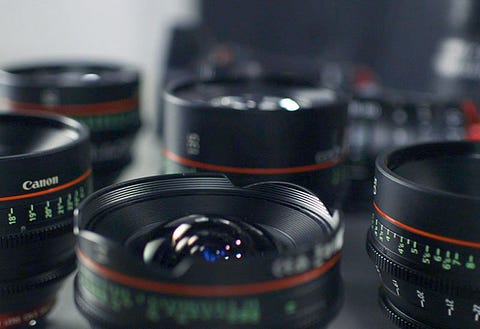
Has filmmaking been a part of your New Year Goals? Yes, many people like you every year make filmmaking a New Year goal and let it remain one. They end up procrastinating about the same thinking — it is not an easy goal to have. Well, let us tell you, no goal is easy, and no goal can be achieved without working on it. Filmmaking requires a lot of patience, hard work and consistency, for nothing of great value can be achieved with ease. What is most important is to not let it remain a goal on a page of your diary but get up and start making films. Now, your obvious question would be — How do I get into filmmaking? So, here are some time- tested ways that you could bring into practice and give your journey the much-needed start.
1. StudyThere is no better way to learn filmmaking than watching films. But, to study the subject, go a few steps further and break the film down and try to learn about each aspect of it. Do not watch a film for entertainment but watch it like a critic. Get specific, note the art direction, sound design, locations, characters and start analytic thinking. Think about what would you have done better or changed? Which cast would you go ahead with? Was there anything in the way the film was edited that you would like to change? How would you have shot a particular scene? All these observations and questions will help you think like a filmmaker and give you more confidence in jumping on to the next step. Apart from this, you can give your dreams a more serious approach by enrolling yourself in a professional course. While the above practice and observation are good for understanding the process of filmmaking, nothing can replace a thorough and detailed knowledge about the subject you are keen to pursue. Thus, studying filmmaking can be a great option. You can enrol yourself in an Advanced Certificate Programme in Filmmaking from WWI Extension and give your dreams the wings they need. If you want to pursue a specific subject in filmmaking, you can equip yourself with a professional course on the same. For instance, WWI also offers Certificate Programme in Direction, Editing, Sound Design, Film Appreciation, Cinematography, Producing and Screenwriting, these individual courses can help you master a particular field.
2. Create
There is no shortcut to this step. If you want to make films, you must make films. So, do not think about how big or small your canvas is, or which camera you have. Just take your camera, even if it is a phone camera, and shoot. Do not bother about the outcome or worry about showing it to others and their feedback, just get your technique right first. Shoot whatever you like but keep shooting and improvise each time, because practice is the only thing that will help you achieve perfection. If you are interested only in a specific task like the sound design or editing, collaborate with friends who are interested in the other departments and together, create content that would help you better understand filmmaking.
3. Volunteer
Ok, so you have studied, and you have made some films, now how to enter the film industry and make your mark is something you need to work towards. Offer to volunteer or take up internships because you need to start somewhere. You may not get paid initially, but the benefits to a fresher are plenty — Volunteering provides you with an entry into the world of filmmaking, helping you make the right connections and learn from industry experts too. There are many people shooting for films, ads, music videos, etc. so contact them and offer your services in the department that interests you the most. It would allow you to learn the craft in a professional manner and the more you meet and work with such people, the better and bigger are your chances of getting paid work in the future. Volunteering also helps you understand various nuances and roles played through different departments, helping you decide what you could specialise in
Reference Links:
www.nfi.edu/foley-artist
www.sound-ideas.com/Page/what-is-foley
www.studiobinder.com/blog/what-is-a-foley-artist
www.nfi.edu/foley-artist
www.sound-ideas.com/Page/what-is-foley
www.studiobinder.com/blog/what-is-a-foley-artist


